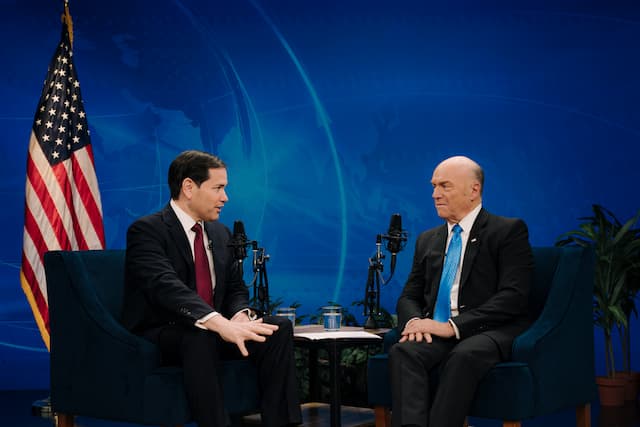Discernment week #2: How to train in discernment

By Elizabeth Prata
If you search the internet for help on the practical uses and application of the gift of discernment in the local body, you will admittedly get all sorts of wacky theories in your results. In yesterday’s essay I posted in “Further Resources” an essay by Sinclair Ferguson. In it, Ferguson mentioned the same thing, the fringe wackiness that tends to populate the discernment world. That’s too bad, because it puts people off the topic, and the very skill we all need to hone.
The global church hasn’t been very helpful on teaching specifically how the skill of discernment should operate in the local body, and that oversight has left the door wide open to all sorts of approaches. What we do know is that if you possess the gift of discernment it’s supposed to edify the body. If you don’t have the gift but are training in discernment as Hebrews 5:14 says to do, it’s supposed to edify yourself, your family, and be used in your sphere, whether church, work, or home.
In other words, do you possess the discernment to know that the songs your teen is listening to are solidly doctrinal- or not? Do you know when you hear a verse used out of context it’s out of context? Do you know if your wife is reading a book by a false teacher?
People usually think that the gift of discernment is just a demon-detector. It can be, but not solely and not often. Discerning of spirits means the person is attuned to whether someone is speaking from the Spirit of God or from another spirit, and this usually applies to biblical wisdom. Here are some verses that focus on discernment, both the personal skill we all should hone, and the gift given to some for the edification of the body.
Beloved, do not believe every spirit, but test the spirits to see whether they are from God, for many false prophets have gone out into the world. (1 John 4:1)
And it is my prayer that your love may abound more and more, with knowledge and all discernment, so that you may approve what is excellent, and so be pure and blameless for the day of Christ, (Philippians 1:9-10).
To another the working of miracles, to another prophecy, to another the ability to distinguish between spirits, to another various kinds of tongues, to another the interpretation of tongues. (1 Corinthians 12:10).
The discerning sets his face toward wisdom, but the eyes of a fool are on the ends of the earth. (Proverbs 17:24)
Demon detecting is rare. Discernment means simply knowing truth from untruth, and applying that truth in wise ways. The distinguishing of spirits in actual ways does happen occasionally. I’ll relate an instance. This first one is an example from John MacArthur from 1976, of how a church member gifted with discerning of spirits could detect that a women was not speaking from the Holy Spirit:
I remember going into the prayer room one time, right here, and a certain occasion happened on a certain night. A girl came in there and began to speak and to pray. And one of our staff stopped right in the middle I demand to know what spirit that is. That’s not the Holy Spirit. That’s the gift of discernment and praise God it protected the church from a very difficult situation and moreover protected her. When it was all said and done God delivered her as well.
These kinds of things don’t happen often. Paul knew that a slave girl saying something perfectly normal was possessed by a demon. (Acts 16:16-18). Peter knew Ananias was lying to him (to the Spirit, (Acts 5:1-3). Another time Paul looked intently at a crippled man and knew he had the faith to be healed. (Acts 14:9). Those men were apostles, though. But it’s best to leave the demon detecting to Jesus.
In most cases the skill of discernment is a useful, practical, everyday skill we train ourselves in being able to compare what is being taught to scripture and testing accurately to see if it is from the Holy Spirit or ‘another spirit’, i.e. satanic. Remember, discernment is a skill we hone as a weapon for use in our spiritual warfare.
Below you see a ring graph. It represents all the ways the Greek word for discernment has been translated and their meanings.

Logos explains the graph: The translation ring shows the key lemma in the center with all the ways that lemma has been translated in a given reverse interlinear Bible around the ring. Ring segments are sized relative to the frequency of each translation. The largest ring segment accounts for the largest number of occurrences translated in a particular way. In this example, the Greek word πειρασμός is most often translated as “temptation” and less often as “trial, trials” and least often as “severe testing.” Logos / Faithlife.
In this discernment ring, the word is most often translated examine, test, approve.
Some of the key verses for discernment that would be part of the blue are:
Romans 12:2 – And do not be conformed to this world, but be transformed by the renewing of your mind, so that you may prove what the will of God is, that which is good and acceptable and perfect.
Ephesians 5:10 ESV and try to discern what is pleasing to the Lord.
We are supposed to train ourselves in discernment by examining everything, testing it, and either approving it or dispensing with it. So…how?
GotQuestions states: “So, how does one increase spiritual discernment? First, recognizing that God is the only one who can increase wisdom, pray for it (James 1:5; Philippians 1:9). Then, knowing the wisdom to distinguish good from evil comes by training and practice, go to the Bible to learn the truth and, by meditation on the Word, reinforce the truth.“
That’s it?! you say? Yes, that’s it. I won’t give you a big, complicated chart because you do not gain wisdom that way. I won’t offer a step-by-step plan of 100 things you need to do. That’s not how we gain discernment. We intensively study the Bible, we pray for wisdom, we seek intimacy with God, and we practice it in every day life. That’s it.
Like this: when we read a tweet, do we trust it and retweet it? Or do we say, “that’s not true” and refrain from propagating its lies? If we enter a Christian bookstore and see an artfully arranged tower of books with smiling faces on the front covers, do we know that the book is going to be truthful or not? If we’re not sure, we can look at the blurbs and recommendations and if other false teachers promote the book positively, then we can say, “no, thanks” and move on. Or we can jot down the name of the author and google it later and see about this author.
If we are checking out a church, we listen to some sermons online first, and test what is taught against the Bible. These are a few of the myriad ways we discern things in every day life.
It’s trite to use this example, but it’s a true one and the method is used to this day. People involved with money, like bank tellers and FBI agents, are trained to spot the fake bills. Why not study the fakes first? Because there are new fakes every day. I personally can’t keep up with how many false teachers there are, and there are more every day. So the people are trained intensively to know the real bills. So that if they come across a fake, they will immediately spot the difference. It’s the same with the Bible. Study it, know what is in there, and if you come across someone twisting the verses, even subtly, you will know it.
“Discernment is the skill of understanding and applying God’s word with the purpose of separating truth from error and right from wrong.”
Tim Challies, the Discipline of Spiritual Discernment
Note Challies’ definition, we read the Bible to understand God’s truth, and we apply it to train up in discernment, in order to serve God, please God, and enact the will of God in our lives. We train up by constantly testing everything against the Bible. Everything! Constantly! Do we think a bank teller only looks at a few bills that come her way each day to see if there’s a counterfeit stuck in there? No, she looks at every bill. We should do the same, as it says in 1 Thessalonians 5:21
but examine everything; hold firmly to that which is good
Tomorrow, more on discernment!
Further Reading
Critical Issues Commentary- Discerning Discernment: The Meaning and Significance of Hebrews 5:12-14 in the Christian’s Call of Discernment
GTY Blog essay: The Marks of Immaturity, and How to Keep Growing
GotQuestions: How Can I Develop My Discernment?
Christianity Today: 3 Ways Discernment can be Developed
Some Spurgeon quotes on discernment
Books
Tim Challies- The Discipline of Spiritual Discernment
John MacArthur- Reckless Faith: When the Church Loses Its Will to Discern





